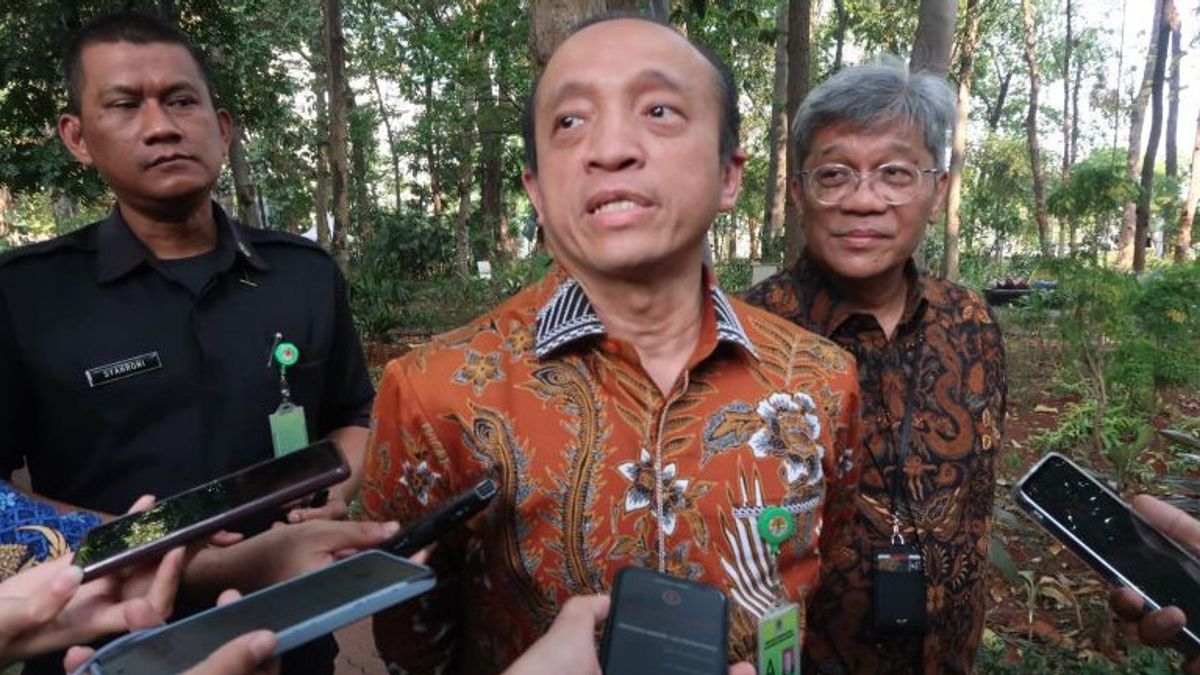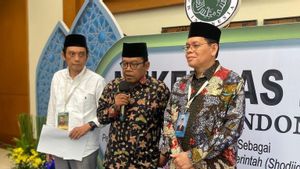JAKARTA - The Ministry of Environment and Forestry (KLHK) stated that the number of palm oil entrepreneurs who are indicated to run a business in forest areas is currently 90 percent taking care of the permits contained in the Job Creation Act.
"In the past one to two days, we are sure that all of them can be included in the legal subject," said KLHK Secretary General Bambang Hendroyono as quoted by ANTARA, Monday, October 30.
Law Number 11 of 2020 or the Job Creation Law (UUCK) mandates the deadline for completing oil palm in forest areas on November 2, 2023.
The regulation is divided into two typological clusters in accordance with Articles 110A and 110B of the Job Creation Law.
Article 110A is an oil palm plantation that has been built, has a plantation business license, and is in accordance with spatial planning when the permit is issued, but its current status is in the production forest area, protected forest area, and conservation forest area.
Meanwhile, Article 110B regulates the completion of oil palm plantations that have been built in production forest areas, protected forest areas, and conservation forest areas but do not have permits in the forestry sector.
"Central Kalimantan and Riau received great attention because indeed Article 110 A we call the disputerative and disputed regulations," said Bambang.
The Ministry of Environment and Forestry noted that the total area of oil palm plantations in forest areas in Indonesia reached 3.37 million hectares, with details of palm oil in a conservation forest area of 91,074 hectares, oil palm in a protected forest covering an area of 156,119 hectares, palm oil in a fixed production forest reaching 501,572 hectares, palm oil in a limited production forest covering an area of 1.49 million hectares, and palm oil in a conversion-production forest covering an area of 1.13 million hectares.
Baca juga:
- KPU-DPR Bahas Revisi PKPU soal Usia Capres-Cawapres Besok
- Kasus Petugas Rudenim Tewas, WNA Korsel Jadi Tersangka Tapi Bukan Soal Pembunuhan
- Jokowi: Kloter Perdana Bantuan RI ke Palestina Dikirim Pekan Ini
- Muhaimin: Jokowi Sebagai Kepala Negara Tentu Harus Netral, Islam Mengatakan Berlaku Adil Meski kepada Anak Sendiri
The Palm Oil Governance Task Force requires palm plantation corporate business actors in forest areas to register independently through the Plantation Licensing Information System or abbreviated as Siperibun belonging to the Directorate General of Plantation of the Ministry of Agriculture.
If business actors in forest areas are late in dealing with permits, the government will not hesitate to impose sanctions ranging from administrative fines to forestry crimes.
"The procedure that must be followed in the Forestry Law provides legality later (of oil palm plantations) no longer in forest areas," concluded Bambang.
The English, Chinese, Japanese, Arabic, and French versions are automatically generated by the AI. So there may still be inaccuracies in translating, please always see Indonesian as our main language. (system supported by DigitalSiber.id)













